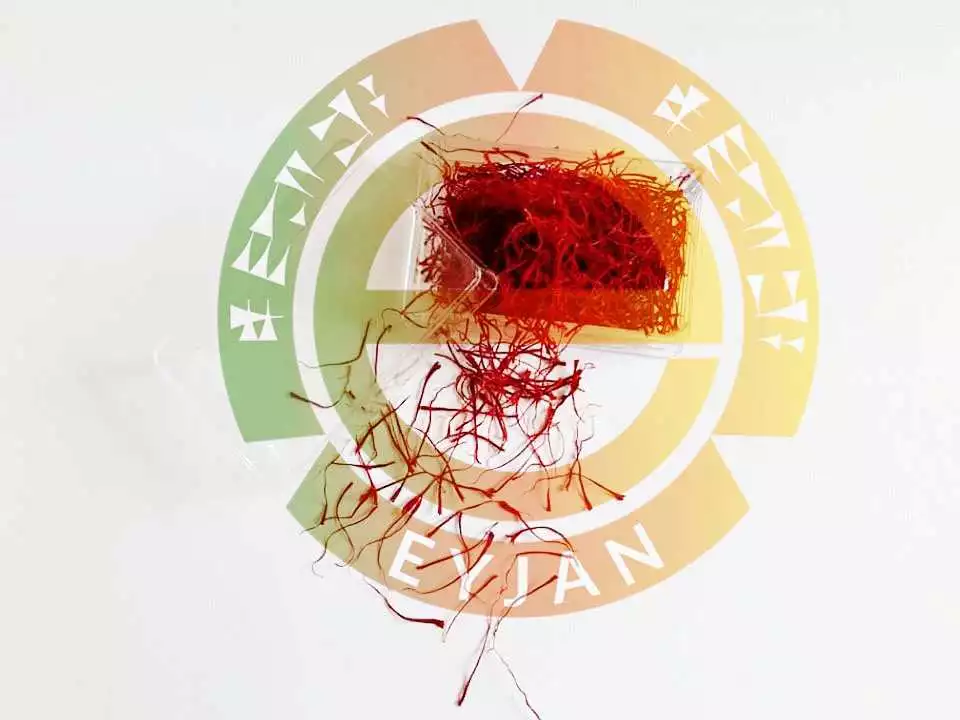Iranian saffron pharmaceutical -therapeutic properties

Saffron is a plant that is used by all nations of the world and in various forms as follows:
Use saffron as herbal tea
Herbal tea is a hot drink in which a part of a flower, leaf, stem, root, skin, fruit or other components of medicinal herbs is placed in boiling water, then a Chinese or glass teapot or kettle is placed on gentle heating. This saffron tea can slowly steep from 10 to 15 minutes.
In different parts of the world, from Westminster London to San Francisco's restaurants and cafes in the United States and tea houses from traditional countries such as Iran, Turkey, Iraq, the United Arab Emirates, Kuwait, Afghanistan, saffron tea is stylish drink. Other uses of saffron for medicinal and treatment purposes are satisfactory.
To prepare saffron tea, half a gram of Sargol saffron is added to the boiling water. There is no heating so the degree of boiling water is decreased. The saffron tea is slowly steep in a Chinese or glass teapot or kettle from 10 to 15 minutes. Seal the teapot with a tight-fitting lid to keep the steam from escaping. Then the stylish and pleasant saffron tea is ready for drinking. This herbal drink after one hour will lose its excellent flavor and color, and high quality.
To prepare a tincture, grind 2 grams of saffron and mix it with 20 grams of white alcohol at 80 degrees and keep it in a glass container. Place this glass in the dark place and shake it every day, after 2 weeks strain the spent herbs and it is ready to be used it. The maximum amount of tincture of saffron is 10 to 15 drops per day.
Saffron as an Anti-cancer drugs
the most prominent effect of saffron Based on various researches around the world, including the Mashhad University of Medical Sciences, is controlling cancer. With all the scientific and technological advances in medical science, no definitive treatment has been found for this disease. Saffron, as a natural and organic, without damaging the human body, inhibits and controls cancer cells.
Considering the wide range of medicinal and edible uses of saffron, a scientist named Nair found the anti-cancer effect of saffron, and later many other scholars, including Abdul Wahi and Tarantilly and Scyrbano, confirmed this result. In recent years, a lot of research has been done. This anti-cancer effect of saffron has caused all researchers in different countries such as the United States, England, Japan, Germany, Mexico, Azerbaijan, India, Spain, Greece, Iran, and other countries to pursue their research on this topic.
In a study conducted in Spain, saffron corm was used to control human cancer cells and the results showed that corm saffron tissue could prevent the growth of cancer cells. Saffron has had an anticancer effect in various cellular models and on a range of tumors including leukemia, ovarian and breast carcinoma, colon adenocarcinoma, rhabdomyosarcoma, papilloma, and cell carcinoma.
While saffron has a selective effect with low dose micromolar on malignant cells, including human cancer cells, it usually does not influence the ability of healthy living cells.
Saffron has been proven to inhibit the formation of colon formation in tumor cells but does not affect the proliferation and differentiation of healthy cells. Also, prescription of oral and positional therapy of saffron extract in the living creature reduced the incidence of artificial cancer, inhibited the growth of the tumor and prolong the life of the animals in the laboratory, further research results suggest that placing the cancerous cells on the surface of the extract Saffron inhibits the synthesis of nucleic acid in the cell, with saffron consumption, the reduction of proteins that are the primary sign of cancer is clearly observed and the onset of the progression of the disease is much slower.
Research results in Italy suggest that saffron has anti-cancer effects and acts as an anti-tumor drug and anti-free-radical formation. Based on medical research, it has been proven that antioxidants in saffron have anti-cancer properties. According to the results of this study, the use of saffron seems to prevent the occurrence of carcinogenic gene sequences and has a significant effect on the repair of damaged DNA molecules. The results of university research in Morocco have shown that saffron as a medicinal herb has an anticarcinogens effect.
Based on numerous articles presented at the international conference of saffron, the third-millennium herbal medicine, by Iranian scientists such as Mr. Amir Chaghmaqi and Mr. Mozafari, it was mentioned that saffron has anti-cancer effects on a range of tumors such as leukemia, colon adenocarcinoma, squamous cell carcinoma, and soft tissue sarcomas. According to the scientific and research achievements in Mashhad University of Medical Sciences, the scientists reported that saffron, used as spice or drug in medicine, has anti-cancer effects.
Saffron increases plasma oxygen levels and has anti-cancer properties. In a study conducted in Spain, the inhibition effects of saffron cells on liver cancer have been shown to be effective in controlling cancer cells. Another study found that saffron, by improving the process of apoptosis, preventing from the proliferation of cells and its anti-inflammatory effect, could significantly inhibit the onset of liver cancer or its progress in mice.
Liver cell cancer or HCC is the 5th most common cancer in the world and the third most common cause of death in cancer patients. Some diseases such as Hepatitis B, C, and Fatty Liver Disease or exposing to peripheral carcinogens such as DEN, iron oxide, and alcohol use can be the source of this fatal cancer. Research on the experimental mice shows that saffron extract can clearly play an important role in a strong chemical protector against these agents.
According to a study conducted at the University of the United Arab Emirates, saffron, which has already been proven its antioxidant properties, can protect the liver from the progression of cancer and carcinogens such as Diethyl nitrosamineor DEN in tobacco, cosmetics, and gasoline and Processed foods. The saffron is also effective in the treatment of ocular diseases, since saffron contains many antioxidant properties, is recommended by herbal medicine specialists to treat visual impairment.
We recommend to buying all red pure natural saffron from Eyjan saffron company -wholesaler





